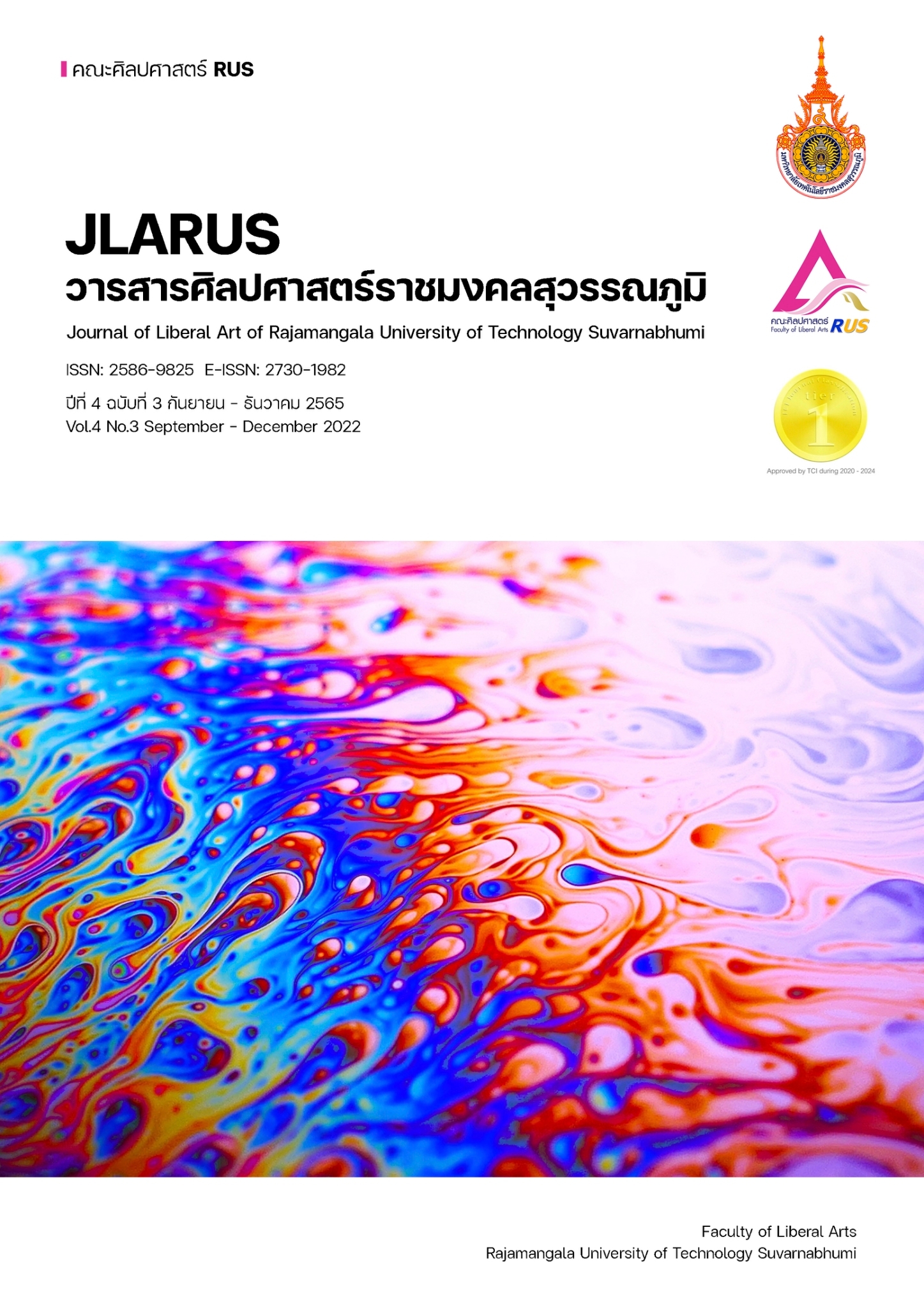OPINION LEVELS TOWARD DECISION FACTORS FOR ACCEPTANCE TO UNDERGRADUATE STUDY AT UNIVERSITY OF PHAYAO IN AN ACADEMIC YEAR OF 2022
Main Article Content
Abstract
This research had the objective to study the level of opinion on factors affecting the decision to choose to study in the bachelor's degree in University of Phayao. Academic Year 2022. The sample group was 453 first year students of Phayao University, Academic Year 2022 chosen by simple random sampling using the Taro Yamane formula at 97% confidence level. The tool used in the study was a 5-sided assessment questionnaire, including 23 factors, with an IOC = .95 value. The data was collected by having the Faculty/College distribute and collect questionnaires. Descriptive statistics, mean and standard deviation were used. The research represented that decision factors for bachelor degree study in the academic year of 2022 ranging from high to low were an institution with high impact of an arithmetic mean of 3.91 followed by public relation scheme ( = 3.88) , curriculum and management ( = 3.85) and services ( = 3.78) in which well-being and facilities ranged the least with a mean of 3.53. In terms of decision making factors for University of Phayao, respondents ranged gorgeous scenery and breathtaking atmosphere as their first priority with a mean of 4.42 runnered up by career opportunities provided by the university ( = 4.22), profession and expertise of academic staff ( = 4.16), cutting-edge equipment and facilities ( = 4.01), well acceptance by employers both from government and private sectors ( = 3.79), acceptability by societies ( = 3.08), respectively. The conclusion from this sresearch providedinsight analysis information for decision making factors justified by students for applying for their undergraduate studies. The data could be useful for planning and management in order to suit the needs of targeted future students.
Article Details

This work is licensed under a Creative Commons Attribution-NonCommercial-NoDerivatives 4.0 International License.
References
ใจชนก ภาคอัต. (2563). แนวทางการพัฒนาศักยภาพมนุษย์ด้วย Competency. กรุงเทพมหานคร: ศิริวัฒนาอินเตอร์.
เจือจันทร์ จงสถิตอยู่. (2563). ความต้องการทางการศึกษา โอกาสและทางเลือก. วารสารการศึกษาแห่งชาติ. 16(2), 11-12
ชลัยรัตน์ จิรชัยเชาวนนท์. (2562). การศึกษาทัศนคติและสื่อประชาสัมพันธ์ที่ส่งผลต่อแรงจูงใจในการเข้าศึกษาต่อในมหาวิทยาลัยราชภัฏเพชรบูรณ์. ใน รายงานการวิจัย. เพชรบูรณ์: มหาวิทยาลัยราชภัฏเพชรบูรณ์.
นฤนาฎ สุวรรณ. (2559). ปัจจัยที่มีต่อการตัดสินใจเข้าศึกษาต่อระดับปริญญาตรี มหาวิทยาลัยฟาร์อีสเทอร์นจังหวัดเชียงใหม่ (การศึกษาค้นคว้าอิสระปริญญามหาบัณฑิต). เชียงใหม่: มหาวิทยาลัยแม่โจ้.
ธันยากร ช่วยทุกข์เพื่อน. (2557). ปัจจัยที่มีผลต่อการเลือกเรียนในระดับอุดมศึกษาที่มหาวิทยาลัยธุรกิจบัณฑิตย์ของนักศึกษาระดับปริญญาตรี. ใน รายงานการวิจัย. กรุงเทพมหานคร: มหาวิทยาลัยธุรกิจบัณฑิตย์.
ธีรวุฒิ เอกะกุล. (2560). ระเบียบวิธีวิจัย. อุบลราชธานี: ยงสวัสดิ์อินเตอร์กรุ๊ป.
บุญชม ศรีสะอาด. (2560). การวิจัยเบื้องต้น. (พิมพ์ครั้งที่7). กรุงเทพมหานคร: สุวีริยาสาส์น.
วลัยพร ขันตะคุ, จรัญญา สมอุดร, และนวรัตร์วดี ชินอัครวัฒน์. (2563). ปัจจัยที่มีผลต่อการตัดสินใจเลือกเข้าศึกษาต่อในระดับปริญญาตรีในมหาวิทยาลัยเทคโนโลยีสุรนารีปีการศึกษา 2563. ใน รายงานการวิจัย. นครราชสีมา: มหาวิทยาลัยเทคโนโลยีสุรนารี.
ศิริพงศ์ พฤทธิพันธ์. (2553). ระเบียบวิธีวิจัย. กรุงเทพมหานคร: อักษราพิพัฒน์.
สมคิด บางโม. (2560). ทฤษฎีและเทคนิคการปรับพฤติกรรม. กรุงเทพมหานคร: จุฬาลงกรณ์มหาวิทยาลัย.
สุวรรณา เพ็งเที่ยง. (2564). ปัจจัยที่ผลต่อการเรียนออนไลน์ในสถานการณ์วิกฤติ COVID-19. ใน รายงานการวิจัย. ปทุมธานี: โรงเรียนหอวัง
อุทุมพร ไวฉลาด.(2561). พฤติกรรมมนุษย์กับการพัฒนาคน. กรุงเทพมหานคร: อักษราพิพัฒน์.
Azoury,Daouand Khoury. (2018). Models of teaching. (12th ed.). Boston: Pearson.
Cubillo, J. M. Sanchez. J. and Cervino. J. (2006). International Student’s DecisionMaking Process. International Journal of Educational Management, 20(2), 101-115.
Maslow, A. H. (1954). Introduction to the Foundations of Education. New Jersey: Prentice Hall.
Plunkett and Attner. (2019). The human sild of enterprise. New York: McGrew-Hill.


